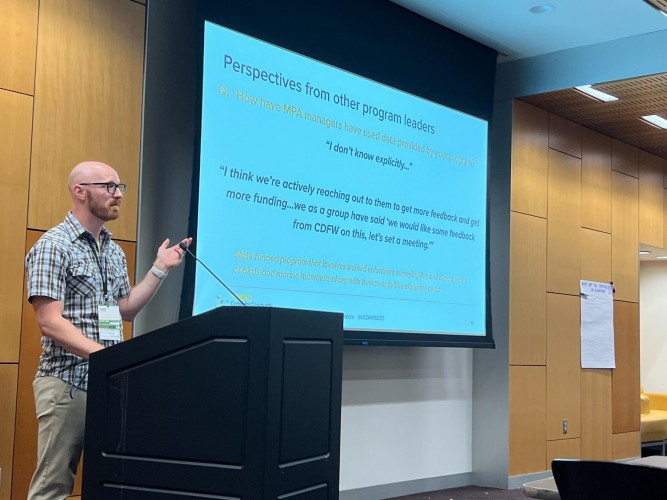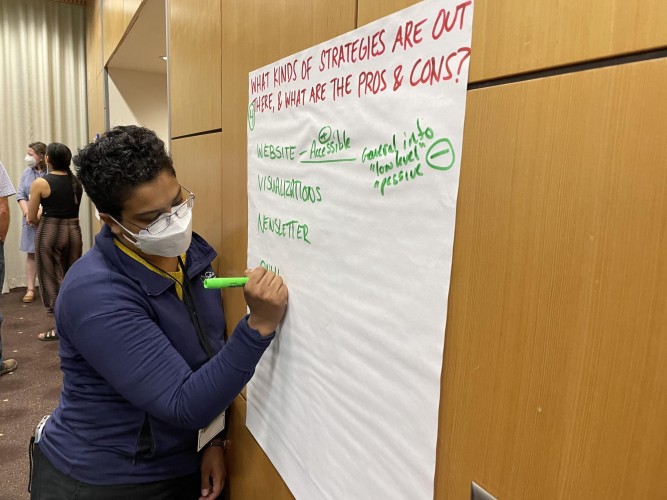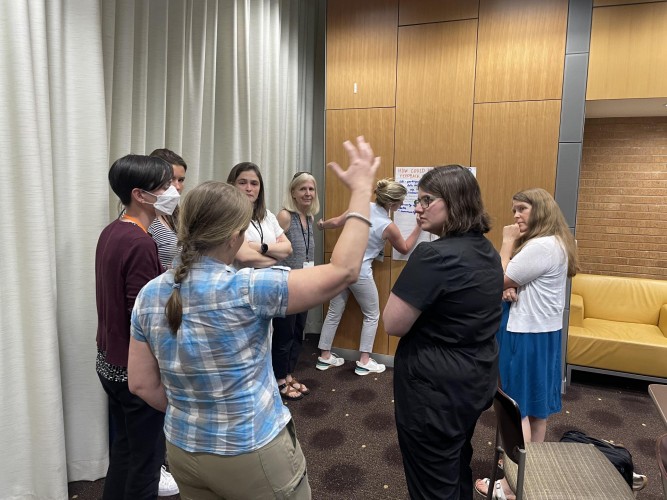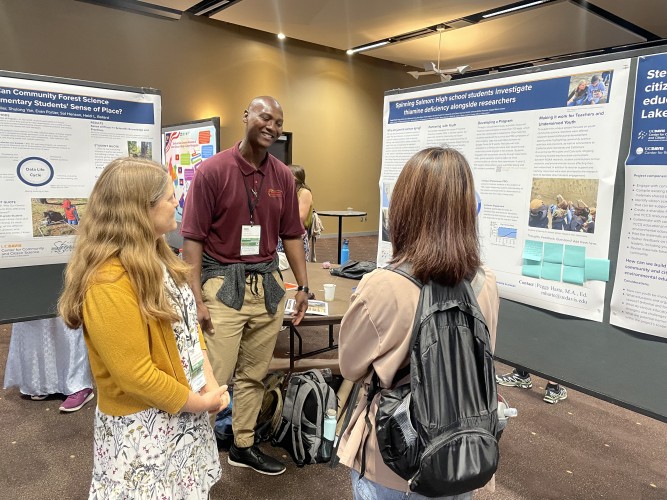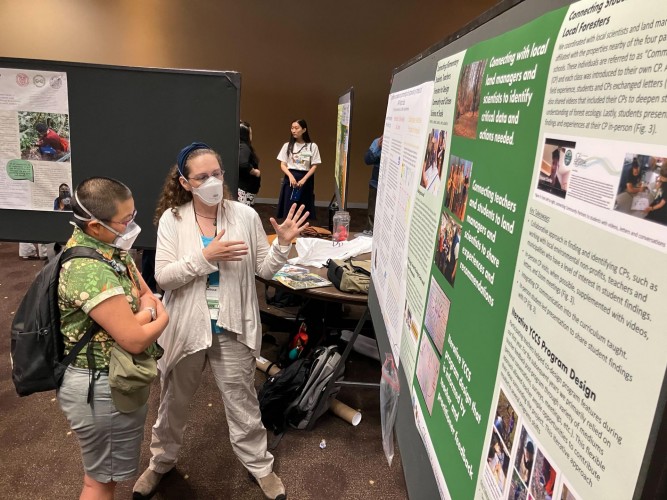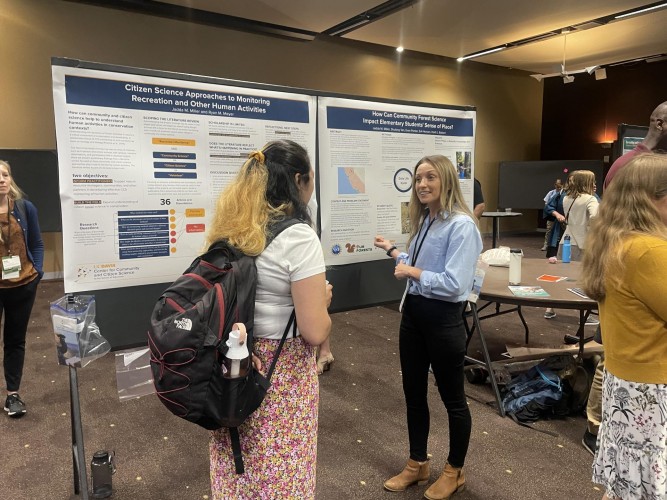C*Sci 2023 Conference Brings Inspiration for the Future of the Field
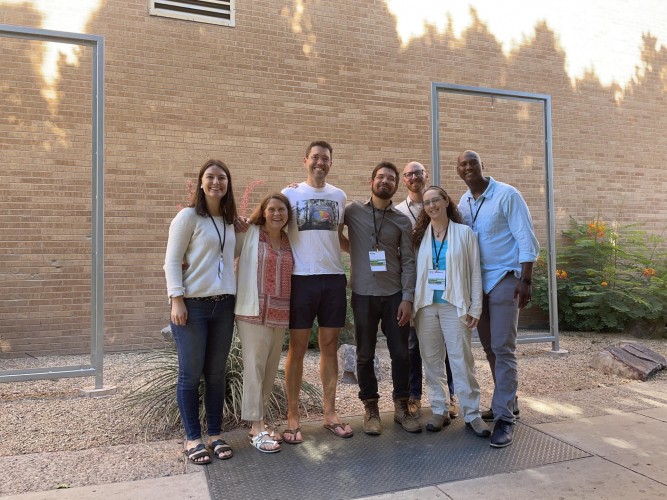 Thank you to the Citizen Science
Association for an amazing
conference. We’re glad to have the opportunity to
highlight our work and partners. It was wonderful to connect
with new and long-time colleagues in the field after years
apart. We’re excited to see what the future
brings.
Thank you to the Citizen Science
Association for an amazing
conference. We’re glad to have the opportunity to
highlight our work and partners. It was wonderful to connect
with new and long-time colleagues in the field after years
apart. We’re excited to see what the future
brings.
Symposia
Tuesday, May 23
What Happens to the Data? Investigating Data Feedback
Loops
Todd Harwell, Ryan Meyer, and Heidi Ballard (UC Davis
Center for Community and Citizen Science); Rebecca Johnson
(California Academy of Sciences)
What do program leaders, participants, scientists, and managers
understand and care about with respect to their data, and why
does it matter? Building off examples of data feedback loops in
California marine/coastal c*sci programs, this session opened
larger conversations about our understanding of the impacts of
data feedback loops across research & practice.
Find more information on the project page.
Organized talks
Wednesday, May 24
Spinning Salmon: High school students investigating salmon
development alongside researchers
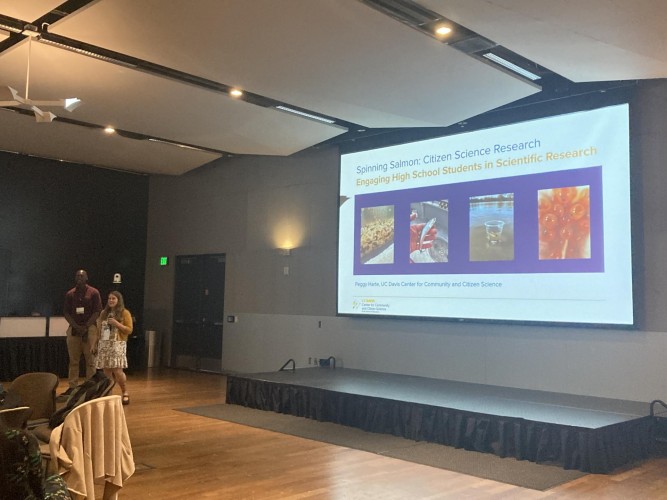 Peggy Harte and Roxanne Liang (UC
Davis Center for Community and Citizen Science); Abigail
Ward (UC Davis Center for Watershed Sciences; Richard Munoz (CA
Department of Fish and Wildlife); Stacey Garrett (Gear Up College
Opportunity Program, UC Davis); Joshua Davis (Solano County
Office of Education)
Peggy Harte and Roxanne Liang (UC
Davis Center for Community and Citizen Science); Abigail
Ward (UC Davis Center for Watershed Sciences; Richard Munoz (CA
Department of Fish and Wildlife); Stacey Garrett (Gear Up College
Opportunity Program, UC Davis); Joshua Davis (Solano County
Office of Education)
Spinning Salmon involves watershed scientists collaborating with
teachers and students to monitor behavioral effects of Thiamine
Deficiency Complex in an ongoing iterative program across 5
California counties.
Find more information on the project page.
Thursday, May 25
Connecting Elementary Students, Teachers, Foresters to Design
Community and Citizen Science at Scale
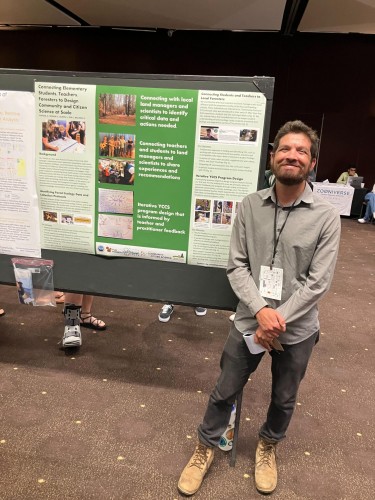 Evan
Portier, Solomon Henson, and Jeff Lauder (Sierra
Streams Institute); (Sierra Streams Institute); Shulong Yan and
Heidi Ballard (UC Davis Center for Community and Citizen Science,
School of Education, UC Davis)
Evan
Portier, Solomon Henson, and Jeff Lauder (Sierra
Streams Institute); (Sierra Streams Institute); Shulong Yan and
Heidi Ballard (UC Davis Center for Community and Citizen Science,
School of Education, UC Davis)
We presented the process and outcomes of designing a forest
monitoring program for 3rd-5th grade classes county-wide
connecting teachers and students to stakeholders in their
community in California.
Find more information on the project page.
Poster presentations
Wednesday, May 24
Stewardship through citizen science and education in the Clear
Lake region, California
Sarah Angulo (UC Davis Center for Community and Citizen Science);
et al.
This project will build stewardship for the oldest freshwater
lake in North America by developing environmental education and
citizen science that supports existing local programs and
research.
Find more information on the project
page.
Wednesday May 24
Spinning Salmon: High school students investigating salmon
development alongside researchers
Peggy Harte (UC Davis Center for Community and Citizen Science);
et al.
Spinning Salmon involves watershed scientists collaborating with
teachers and students to monitor behavioral effects of Thiamine
Deficiency Complex in an ongoing iterative program across 5
California counties.
Find more information on the project page.
Wednesday, May 24
Exploring Policy Impacts of California’s Marine Protected Areas
on Community and Citizen Science
Todd Harwell (UC Davis Center for Community and Citizen Science);
et al.
To explore the growing relationships that exist between
c*sciences and policy, we highlight ways California’s Marine Life
Protection Act impacted c*sci programs active within marine
protected areas.
Find more information on the project page.
Wednesday, May 24
A Citizen Science Approach for Monitoring Recreation and Other
Human Activities
Ryan Meyer (UC Davis Center for Community and Citizen Science);
et al.
Monitoring human activities is a critical component of the
conservation of natural spaces. Our literature review examines
if/how volunteers are engaging in this category of citizen social
science.
Find more information on the project page.
Wednesday, May 24
How can community forest science impact elementary students’
sense of place?
Jadda Miller (UC Davis Center for Community and Citizen Science);
et al.
We present findings from a study of elementary students’
attachment to, identity with, and stewardship of their place as a
result of participating in a year-long forest monitoring
project.
Find more information on the project page.
Thursday, May 25
Using participatory data science to understand human coastal
use
M.V. Eitzel (UC Davis Center for Community and Citizen Science);
et al.
We describe the ways in which analysis of citizen science data
requires iterative partnerships and processes to generate useful
results, using the case study of MPA (Marine Protected Area)
Watch.
Find more information on the project page.
Thursday, May 25
Connecting Elementary Students, Teachers, Foresters to Design
Community and Citizen Science at Scale
Evan Portier (Sierra Streams Institute); et al.
We present the process and outcomes of designing a forest
monitoring program for 3rd-5th grade classes county-wide
connecting teachers and students to stakeholders in their
community in California.
Find more information on the project page.

